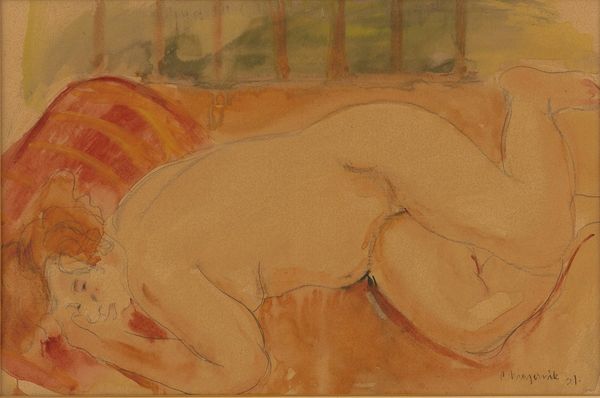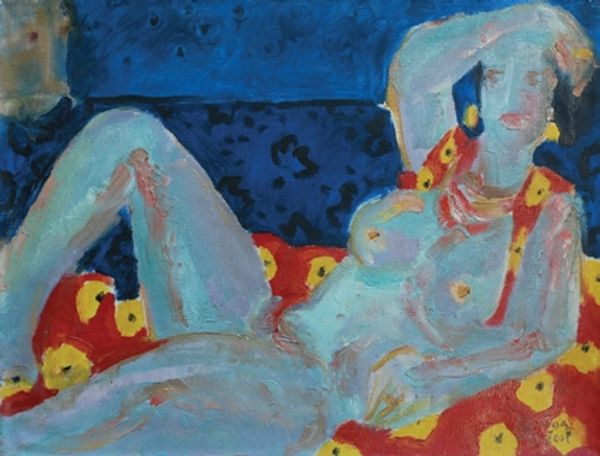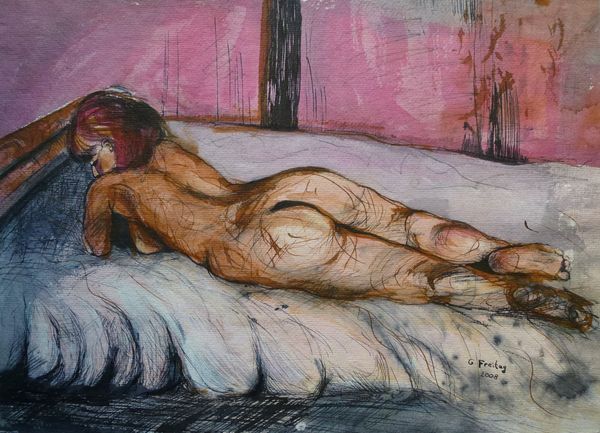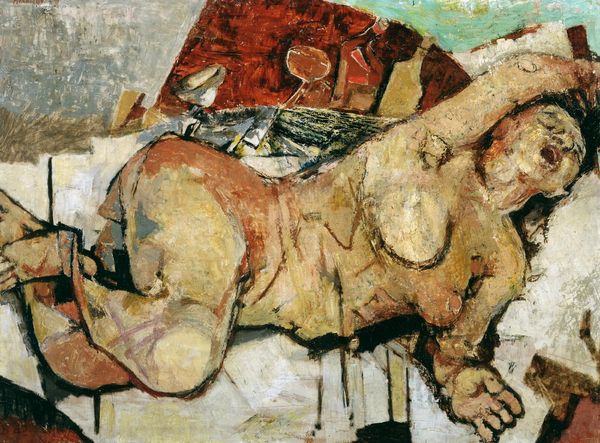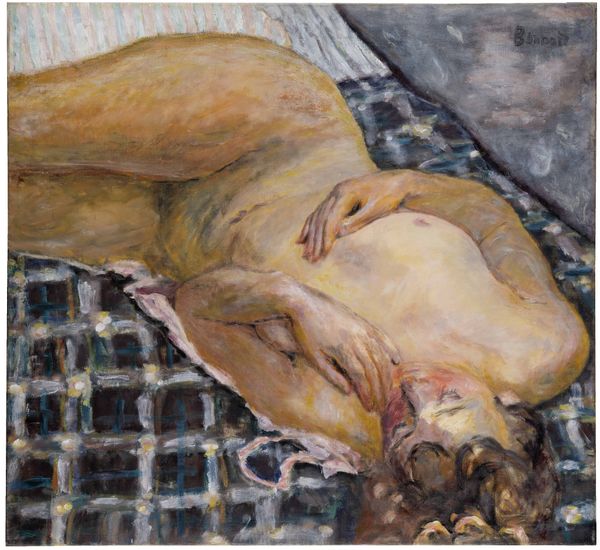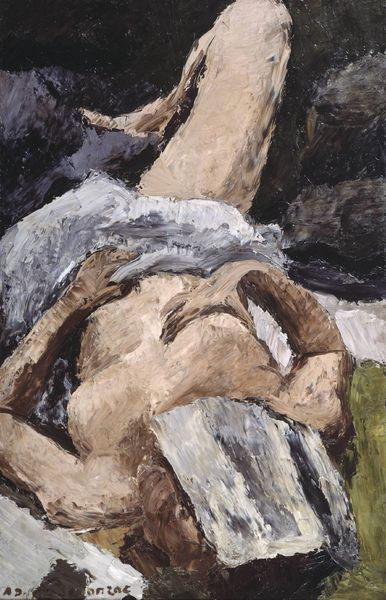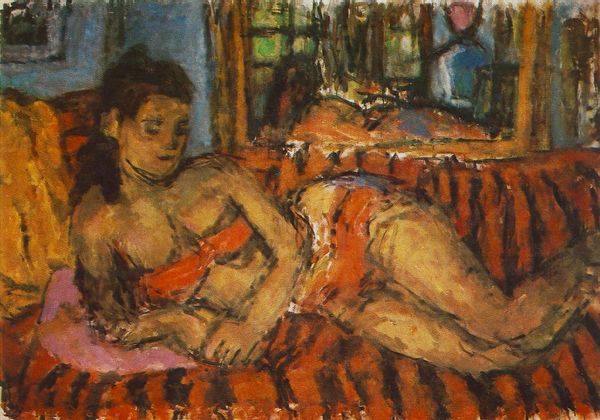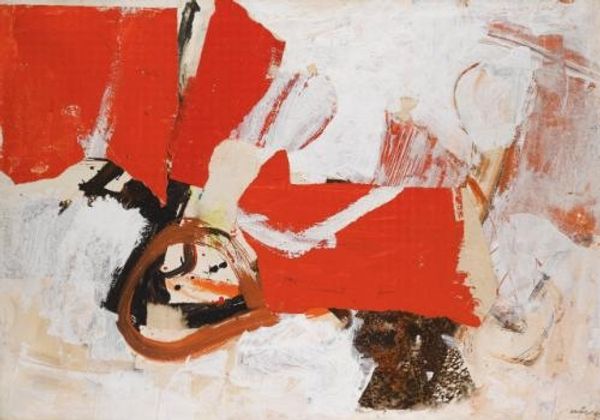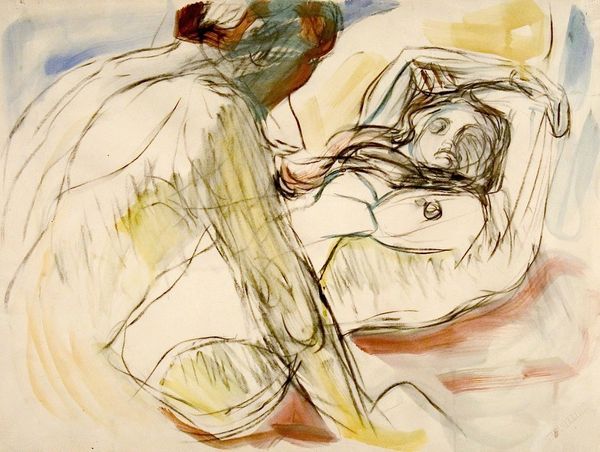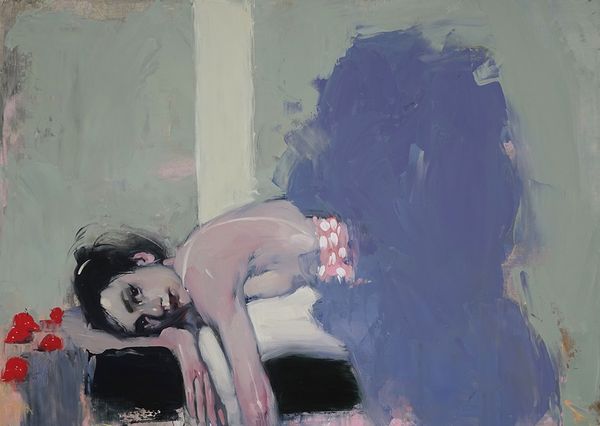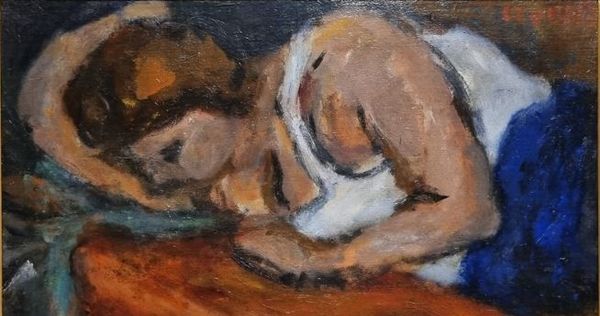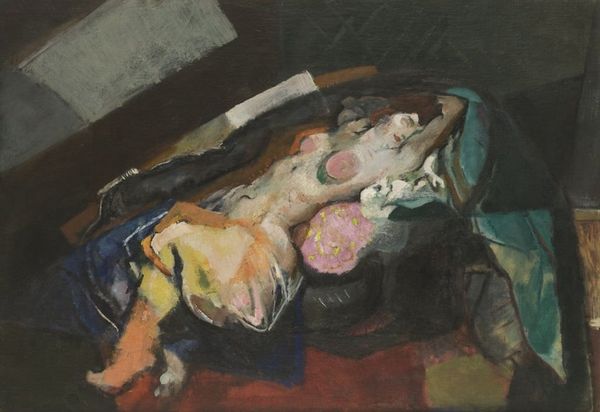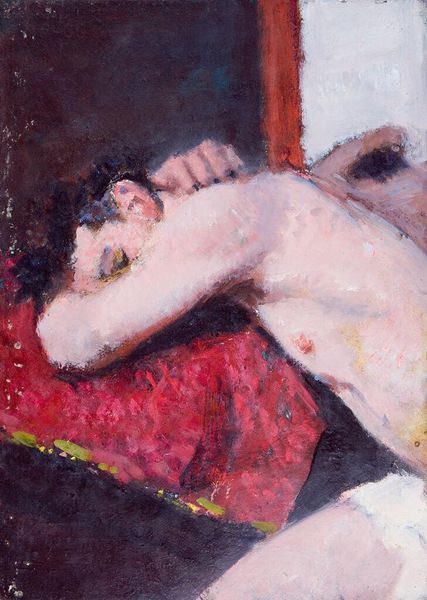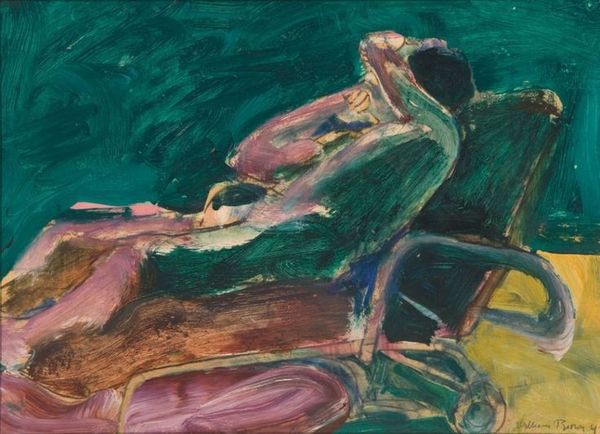
painting, oil-paint
#
portrait
#
narrative-art
#
painting
#
oil-paint
#
figuration
#
oil painting
#
modernism
Copyright: Susan Rothenberg,Fair Use
Curator: Welcome. We’re standing before Susan Rothenberg’s "Pink Couch," created in 2003, rendered in oil paint. It presents a domestic scene, but in a rather… unconventional way. Editor: Immediately, I feel this tension. It’s familiar but disjointed, like a memory filtered through a dream. The skewed perspective, that disembodied hand in the red, maybe wine… and what is that—a small dog at the edge? It’s both unsettling and strangely intimate. Curator: Rothenberg gained recognition in the 1970s for her paintings of horses, but she later incorporated the human figure and narrative elements, which are definitely in play here. The "Pink Couch," viewed in this light, explores the isolation that figures experienced post war, despite living so closely together. There are echoes of alienation in modernism in this piece. Editor: Right, alienation is spot on. That pink is not friendly! It’s a feverish, almost claustrophobic hue. It pushes the idea of "couch" beyond a cozy resting spot. There's a loneliness that permeates every brushstroke, a vulnerability exposed by this fractured scene. Almost feels like something big, an intimate story, has ended, leaving only fragmented objects behind as clues. Curator: Absolutely. The visible brushwork, combined with the skewed perspective and limited color palette, contributes to a sense of unease. Even the seemingly mundane subject of a couch becomes imbued with emotional weight. It challenges conventional notions of domestic bliss that had emerged throughout the mid century, with an updated depiction, full of loss, chaos, and trauma. Editor: The roughness prevents any sense of voyeurism or easy sympathy. This is not a story easily told, but an atmosphere profoundly felt. I imagine it's difficult, almost a violation, to linger long. I also appreciate the quiet courage of putting such unsettling ambiguity on canvas. Curator: I agree. It speaks volumes about her willingness to probe uncomfortable truths and the politics of imagery itself. And that is something, to me, worth recognizing, particularly within the established conventions of museum space. Thank you. Editor: Indeed. Thank you. Now, if you’ll excuse me, I need a bit of a breather after that dive into Rothenberg’s pink world.
Comments
No comments
Be the first to comment and join the conversation on the ultimate creative platform.
